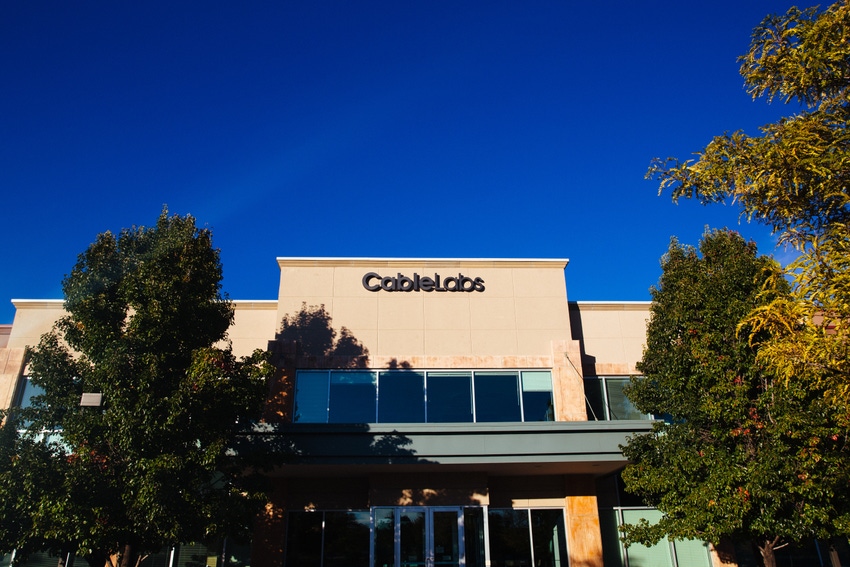Latest CableLabs DOCSIS 4.0 interop keys on full ecosystem and virtualization
New DOCSIS 4.0 interop tests mixed and matched virtualized cores, remote PHY devices and cable modems. 'The integration and optimization of the DOCSIS 4.0 ecosystem is underway,' says CableLabs Principal Architect Doug Jones.

Signaling another step forward for DOCSIS 4.0, CableLabs and its Kyrio subsidiary recently wrapped up an interoperability event focused on testing components spanning the D4.0 ecosystem along with a focus on network virtualization.
The latest D4.0 interop, held February 12-15, featured a range of DOCSIS 4.0-based cable modems, remote PHY equipment, virtualized cores and remote PHY devices (RPDs), Doug Jones, principal architect at CableLabs, noted in this blog post.
Casa Systems, CommScope and Harmonic supplied DOCSIS 4.0 cores for the interop, while Casa, Cisco Systems, CommScope, DCT-DELTA, Harmonic, Teleste and Vecima Networks brought in RPDs. Three suppliers – Arcadyan, MaxLinear and Ubee Interactive – brought in D4.0-based modems. Rohde & Schwarz pitched in a DOCSIS 4.0-capable test and measurement system.
Jones noted that the focus of this round was to test interoperability "across the ecosystem." By way of example, he said a common test scenario was the mixing and matching of virtual cores, RPDs and modems from different suppliers.
"To demonstrate extra flexibility for cable operators, suppliers mixed DOCSIS 3.1 and DOCSIS 4.0 equipment because the specifications are written for cross-compatibility," explained Jones, who will be on hand to provide more DOCSIS 4.0-related updates at Light Reading's Cable Next-Gen Technologies & Strategies event, set for March 12-13 in Denver.
"The integration and optimization of the DOCSIS 4.0 ecosystem is underway," he explained.
Jones added that the interop also "illustrated how the traditional cable modem termination system (CMTS) has been disrupted by virtualization." Instead of running the CMTS in one centralized device, the software components "have been abstracted into a virtual core" in a data center while the physical-layer components have been migrated to the fiber node, he explained.
This latest round of D4.0 interops follows an initial event held last summer that involved ten suppliers and a focus on connecting D4.0-based modems to a handful of DOCSIS 3.1 CMTSs (it's expected that several operators will start to deploy D4.0 modems on D3.1 plant before they upgrade their networks to DOCSIS 4.0). Subsequent DOCSIS 4.0 interops focused on security and proactive network maintenance.
DOCSIS 4.0 deployments are underway
CableLabs and Kyrio are running interops as operators prepare rollouts of DOCSIS 4.0, a platform that will deliver symmetrical multi-gigabit speeds, enhanced security and lower latencies. Comcast has introduced DOCSIS 4.0-based services in three markets – Atlanta; Philadelphia; and Colorado Springs, Colorado. Comcast is initially using pre-certified D4.0 cable modems to offer symmetrical speeds up to 2 Gbit/s via DOCSIS 4.0 under its new "X-Class Internet" branding.
It's still not clear if the majority of North American cable operators will pursue full DOCSIS 4.0 network upgrades. Some are exploring an enhanced form of DOCSIS 3.1 that can enable downstream speeds up to 8 Gbit/s by deploying DOCSIS 4.0 modems or a new wave of supercharged D3.1 modems that can utilize additional blocks of OFDM (orthogonal frequency-division multiplexing) spectrum.
CableLabs and Kyrio announced last June that they were ready to accept products for official DOCSIS 4.0 certification testing for both options of the specs – Full Duplex (FDX) and Extended Spectrum DOCSIS (ESD).
CableLabs execs have since acknowledged that products have been submitted for testing, but no products to date have been certified for DOCSIS 4.0.
About the Author(s)
You May Also Like












